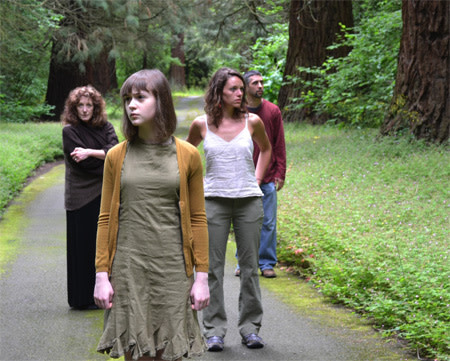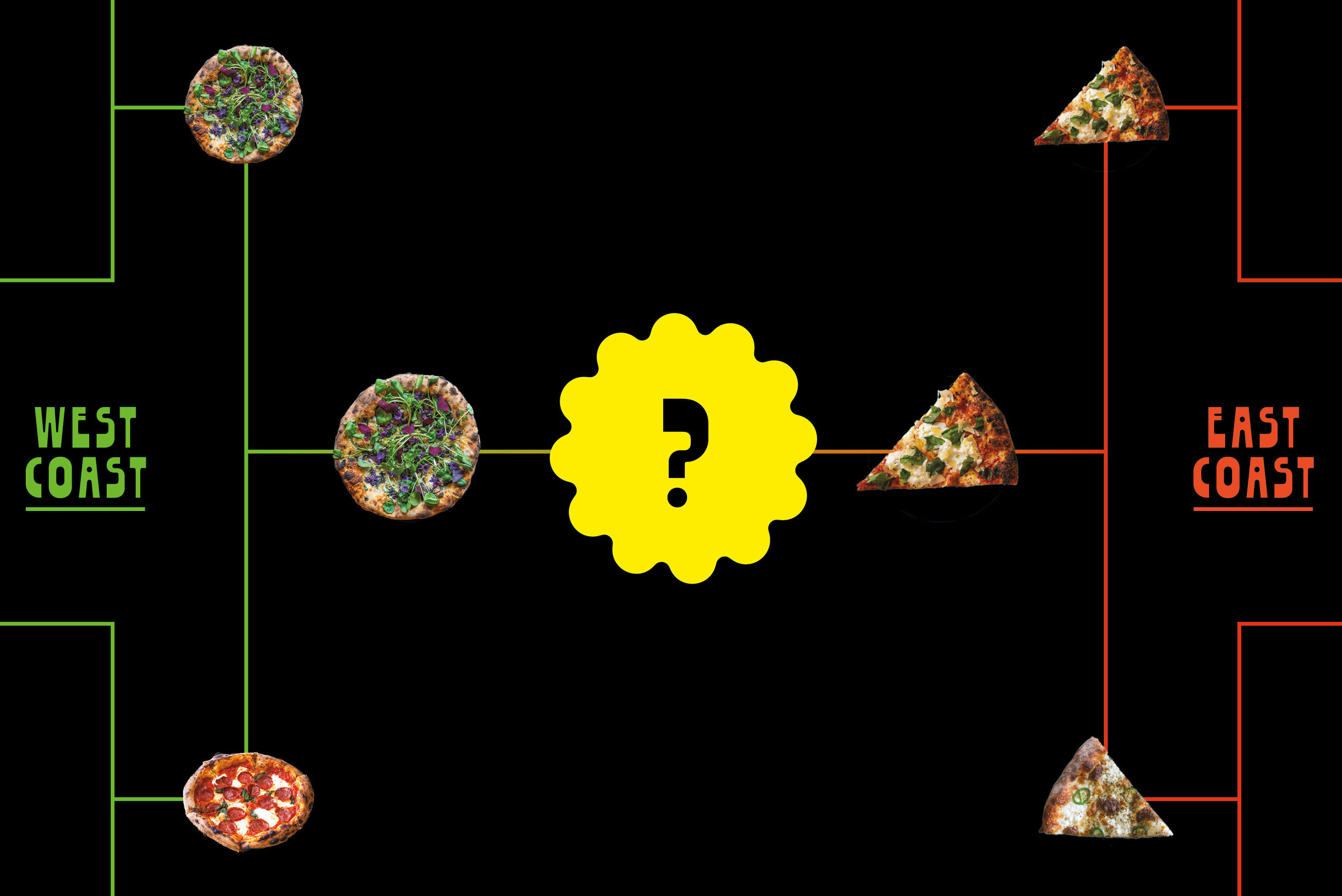Review: Shaking the Tree's Far Away by Caryl Churchill

Shaking the Tree's new production of Far Away is not an easy play. Written by British playwright Caryl Churchill, whose surreal and post-modern dramas are generally regarded as brilliant for their socialist and feminist critiques, it is a work that asks as much from its audience as it gives. Yet for those who embrace the groundlessness of the absurd and the challenge of a biting political dystopia, and who don’t mind a slow pace executed by skilled actors, then it is a short but meaty meal whose thought-provoking flavors will linger well into the night.
Director Samantha Van Der Merwe told me after opening night that she struggled with whether to pass out programs before or after the performance, and opted for after. There was something deliciously discombobulating about the experience of entering blindly, and I would recommend it for the scrupulously curious and patiently thoughtful (if that’s you, stop reading now), but for the rest of us, I think the experience is richer for having some information ahead of time.
At our entrance, Harper, a slightly wild haired matronly woman played expertly by Patricia Hunter, is puttering around her British country cottage when her young niece, Joan (Annabel Cantor), comes down. Joan has heard a scream in the night, to which her aunt has a simple explanation: an owl. But then Joan reveals detail by detail—through a rather drawn out exchange with Harper, who explains away every new revelation with increasingly tenuous excuses—how she crawled out her window and witnessed her uncle moving children from a lorry to a shed and beating some bloody. Finally, Harper claims that her husband is helping transport the children to safety, saying that Joan is now part of a big movement to make things better, but the audience is left questioning if something much more sinister is going on.
The second act skips a number of years to the yound adult version of Joan (Beth Thompson) on her first day working in a hat factory. Slowly she falls in love with her more experienced coworker, Todd (John San Nicolas). But in contrast to their budding quotidian intimacy, their dialogue reveals through oblique references that something has gone horribly wrong, and their handmade hats become part of what feels like a perversely artisanal Portland twist on the Holocaust. The act leaves the audience grasping at what’s happening and where exactly moral lines are drawn.
Instead of resolution, act three crests into an ocean of darkly hilarious absurdity. Todd is hiding at Harper’s house waiting for Joan, and the world has devolved into all out war where everything has taken sides. The mallards are siding with the elephants and the Koreans. The deer have jumped sides from the crocodiles, but the weather’s resolutely with the Japanese. Worse, the Bolivians are working with gravity. Joan arrives and delivers a frantic monologue about how frightening her journey was because she didn’t know what side the river was on that she had to cross.
In the end, if one can call it that (dramas like this start before our entrance and continue long after), the audience is left with a sense of the general yet overwhelming absurdity of fear and war—a sense that likely resonates more now than it did when the play was written in 2000. We’ve unwittingly marched from a fairy tale into a future (present?) where governments rule through terror and divide ‘us’ against ‘them’ with little real reason. The irony of its title raises the question: are Muslims, debt, and immigrants any more reasonable a threat than crocodiles, gravity, and the Japanese? (To say nothing of the ethnic and sectarian violence ripping apart regions of Africa and the Middle East—highlighted through quotes from survivors running down the front of the program).
The acting throughout is suburb, particularly between Thompson and San Nicolas, whose convincing depiction of the nervousness and fragility of a nascent love growing despite all-pervading fear offers our only hope in the play. The pacing at times, however, can drag. Long interstitial moments between dialogue, particularly in the second act, make the play feel longer than its brief runtime. In part, the pace contributes to the mundanity that gives the play its kick, but I would not recommend it for children or those requiring frequent status updates. Yet for those open to a dark, absurd modern fable that raises but never answers troubling questions about how we live in our so-called logical world, it provides plenty to mull over.




